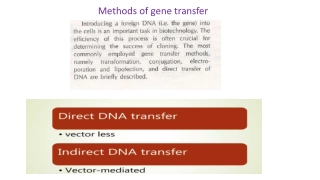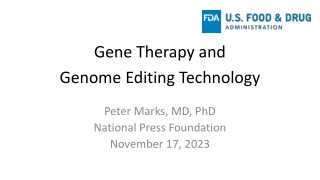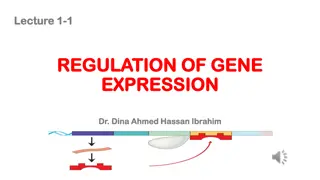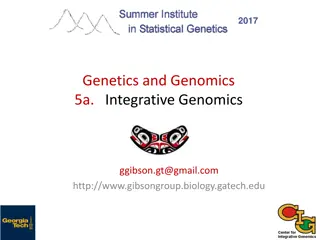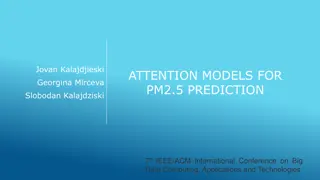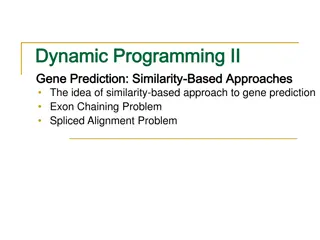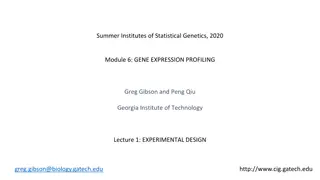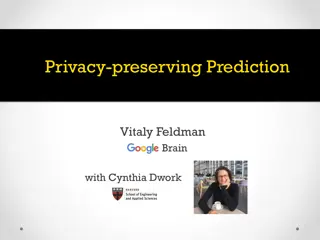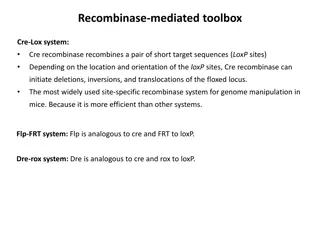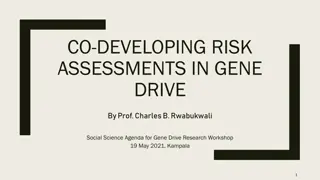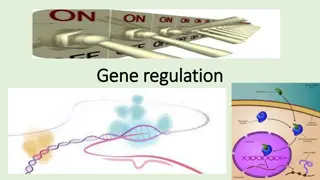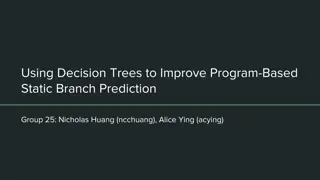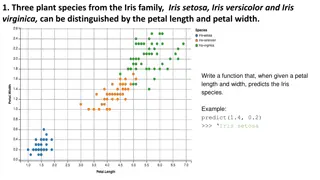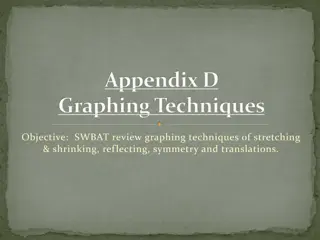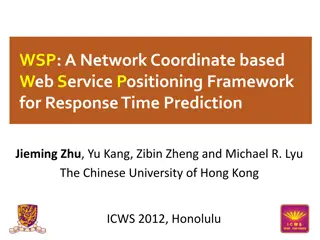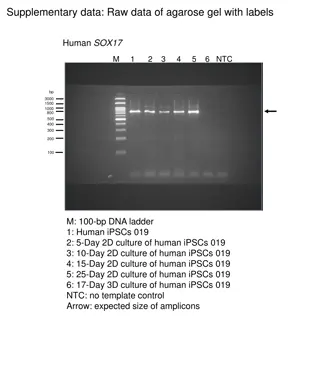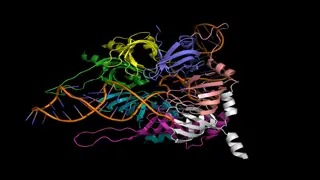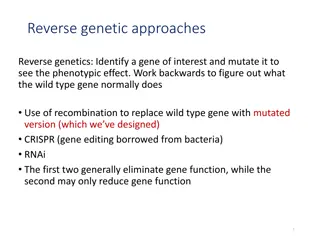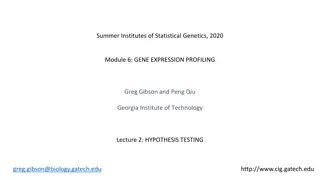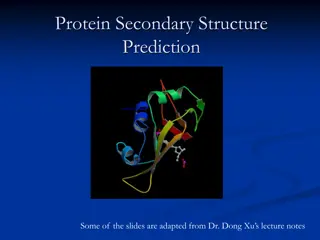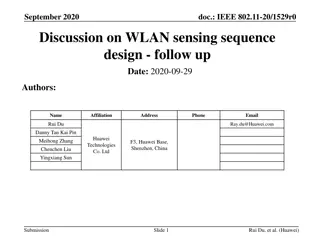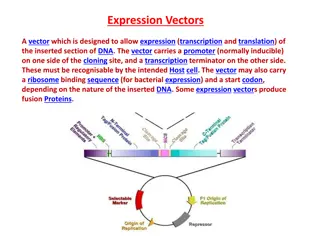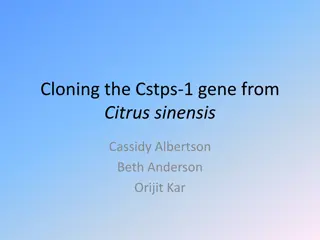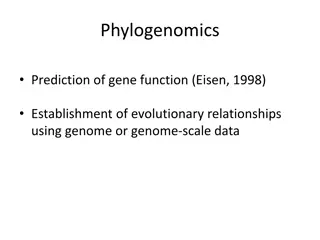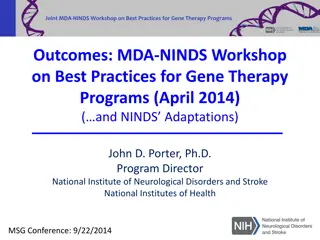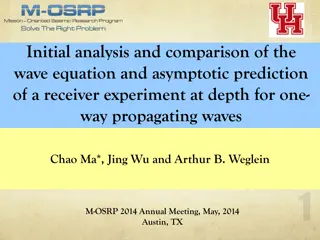Overview of Gene Transfer Methods in Molecular Biology
Explore various physical and chemical methods used for gene transfer, including electroporation, particle bombardment, microinjection, ultrasound, and bacterial transformation. Learn how DNA enters the nucleus and the role of retroviruses in gene transfer efficiency. Understand the process of RNA co
0 views • 17 slides
Gene Therapy and Genome Editing Technology
This article provides insights into the status, regulatory considerations, and delivery methods of gene therapy and genome editing technologies. It discusses approved gene therapies in the US, human genome editing in clinical applications, and the regulatory authority of the FDA over gene therapy. T
3 views • 27 slides
Address Prediction and Recovery in EECS 470 Lecture Winter 2024
Explore the concepts of address prediction, recovery, and interrupt recovery in EECS 470 lecture featuring slides developed by prominent professors. Topics include branch predictors, limitations of Tomasulo's Algorithm, various prediction schemes, branch history tables, and more. Dive into bimodal,
0 views • 42 slides
Understanding Gene Expression Regulation in Prokaryotes and Eukaryotes
Gene expression is a crucial process that leads to the production of functional gene products like RNA and proteins. This article explores the regulation of gene expression in both prokaryotes and eukaryotes, covering the importance of regulating gene expression, types of regulation elements, specif
5 views • 22 slides
Understanding H.264/AVC: Key Concepts and Features
Exploring the fundamentals of MPEG-4 Part 10, also known as H.264/AVC, this overview delves into the codec flow, macroblocks, slices, profiles, reference picture management, inter prediction techniques, motion vector compensation, and intra prediction methods used in this advanced video compression
2 views • 32 slides
Understanding Artefacts and Biases in Gene Set Analysis
Gene set enrichment tests help identify functional gene sets enriched in hit lists compared to background sets. Various biases (technical, biological, statistical) can lead to incorrect conclusions in data analysis, emphasizing the importance of recognizing and addressing them. Technical biases like
0 views • 29 slides
Exploring Genetics and Genomics in Integrative Biology
Delve into the world of genetics and genomics through the lens of integrative biology, investigating the differences between cell types, the rationale for gene expression profiling, and the analysis of differential gene expression in various diseases. Uncover the significance of gene ontology, co-ex
0 views • 22 slides
Advancements in Air Pollution Prediction Models for Urban Centers
Efficient air pollution monitoring and prediction models are essential due to the increasing urbanization trend. This research aims to develop novel attention-based long-short term memory models for accurate air pollution prediction. By leveraging machine learning and deep learning approaches, the s
0 views • 17 slides
Gene Prediction: Similarity-Based Approaches in Bioinformatics
Gene prediction in bioinformatics involves predicting gene locations in a genome using different approaches like statistical methods and similarity-based approaches. The similarity-based approach uses known genes as a template to predict unknown genes in newly sequenced DNA fragments. This method in
1 views • 40 slides
Gene Expression Profiling in Statistical Genetics Summer Institute 2020
This content provides information on the Summer Institutes of Statistical Genetics module, focusing on gene expression profiling. It includes details on the schedule, experimental design, RNA sequencing workflow, modes of bulk RNA sequencing, and RNASeq software. The content discusses crucial steps
0 views • 11 slides
Understanding Gene Mutations in Molecular Biology
Gene mutations play a significant role in molecular biology, leading to alterations in DNA sequences that can impact offspring. These mutations can arise spontaneously or be induced by various factors, such as mutagens. Understanding gene mutations is crucial for comprehending the genetic basis of c
2 views • 27 slides
Privacy-Preserving Prediction and Learning in Machine Learning Research
Explore the concepts of privacy-preserving prediction and learning in machine learning research, including differential privacy, trade-offs, prediction APIs, membership inference attacks, label aggregation, classification via aggregation, and prediction stability. The content delves into the challen
0 views • 11 slides
Understanding the Cre-Lox System for Genome Manipulation in Mice
The Cre-Lox system, a powerful tool in genetic engineering, employs Cre recombinase to recombine specific DNA sequences (LoxP sites), allowing for precise genetic modifications such as deletions, inversions, and translocations. This system enables conditional gene expression, turning on or off trans
4 views • 9 slides
Co-Developing Risk Assessments in Gene Drive
Gene drive technology is a cutting-edge approach aimed at combating malaria by spreading genetically modified genes in mosquito populations. This technology has the potential to protect endangered species and conserve nature. However, successful implementation requires complex collaborations, risk a
2 views • 16 slides
Understanding Gene Therapy: Types, Techniques, and Applications
Gene therapy involves introducing DNA into a patient to treat genetic diseases by correcting disease-causing mutations. There are two types of gene therapy: somatic gene therapy and germline gene therapy, each with different implications. Techniques such as gene augmentation therapy and gene inhibit
1 views • 15 slides
Understanding Gene Regulation and Control of Gene Expression
This comprehensive content delves into the intricate mechanisms of gene regulation and control of gene expression. It covers topics such as transcriptional regulation, bacterial genes classification, and the role of regulatory proteins. Explore how genes are regulated at transcription, translation,
0 views • 17 slides
Understanding Gene Expression in Biological Sciences Course
Explore the dynamic world of gene expression with the Chunky and Chips Gene Expression Group at the University of Notre Dame. Dive into topics like transcription, translation, and cellular events influencing gene expression. Delve into real-world scenarios and gain insights into the cellular level b
0 views • 20 slides
Theoretical Justification of Popular Link Prediction Heuristics
This content discusses the theoretical justification of popular link prediction heuristics such as predicting connections between nodes based on common neighbors, shortest paths, and weights assigned to low-degree common neighbors. It also explores link prediction generative models and previous empi
0 views • 39 slides
Using Decision Trees for Program-Based Static Branch Prediction
This presentation discusses the use of decision trees to enhance program-based static branch prediction, focusing on improving the Ball and Larus heuristics. It covers the importance of static branch prediction, motivation behind the research, goals of the study, and background on Ball and Larus heu
0 views • 36 slides
Understanding Epistasis: Genetic Interactions and Their Implications
Epistasis is a phenomenon where the phenotypic expression of one gene is influenced by interactions with another gene. This concept, first introduced in 1909, plays a crucial role in genetics, affecting various traits and evolutionary processes. The difference between dominance and epistasis lies in
0 views • 41 slides
Helpful Functions for Iris Species Prediction and Dot Number Calculation
The provided content includes a function to predict Iris species based on petal length and width (Iris setosa, Iris versicolor, Iris virginica) and a function to calculate the number of dots in a figure pattern. The Iris prediction function uses specific criteria for each species, and the dot number
1 views • 6 slides
Overview of Graphing Techniques and Functions
Explore graphing techniques including stretching, shrinking, reflecting, symmetry, translations, and various types of functions such as the identity function, square function, cube function, square root function, cube root function, and absolute value function. Understand vertical and horizontal shi
0 views • 25 slides
Monitoring Thyroid Function After Head and Neck Cancer Treatment
This collection of images and data discusses the importance of monitoring thyroid function after head and neck cancer treatment, specifically focusing on post-treatment thyroid function tests, audits of practices in head and neck units, thyroid function post laryngectomy, and the significance of det
0 views • 11 slides
Network Coordinate-based Web Service Positioning Framework for Response Time Prediction
This paper presents the WSP framework, a network coordinate-based approach for predicting response times in web services. It explores the motivation behind web service composition, quality-of-service evaluation, and the challenges of QoS prediction. The WSP framework enables the selection of web ser
0 views • 30 slides
Gene Wiki Jamboree FaceBase Spring Meeting Summary
The Gene Wiki Jamboree FaceBase Spring Meeting in 2010 aimed to create collaboratively-written and community-reviewed review articles for every gene in the human genome and every concept relevant to FaceBase. It highlighted the value of such articles, providing quick summaries and compilations of re
0 views • 13 slides
Raw Data of Agarose Gel for Human Gene Expression Analysis
This supplementary data includes raw data from agarose gel electrophoresis showing gene expression levels for human SOX17, FOXA2, AFP, ALB, and ACTB in various cellular samples. The gel images depict the expected sizes of amplicons for each gene in different conditions and time points of cell cultur
0 views • 5 slides
Understanding Splice Sites and Splicing Elements in the Inhibitory Dopamine Receptor Gene (D2)
In this project, the focus is on identifying splice sites relevant to the inhibitory dopamine receptor gene (D2). The problem involves finding splicing elements within a specific range of known splice sites in the gene. The data provided includes the D2 gene entry in FASTA format, a database of spli
0 views • 13 slides
Understanding Reverse Genetic Approaches in Gene Manipulation
Reverse genetic approaches involve mutating a target gene to observe its phenotypic effects, providing insights into the gene's normal function. Techniques like gene knockout, knockdown, and homologous recombination are used to manipulate genes and study genetic pathways, leading to discoveries in v
0 views • 6 slides
Amendments to WIPPS Manual for Climate Prediction at INFCOM-3, April 2024
The document discusses amendments to the Manual on WIPPS for climate prediction, including new recommendations for weather, climate, water, and environmental prediction activities. It introduces concepts such as Global Climate Reanalysis and the coordination of multi-model ensembles for sub-seasonal
0 views • 10 slides
Basics of Hypothesis Testing in Gene Expression Profiling
The lecture covers the essential aspects of hypothesis testing in gene expression profiling, emphasizing experimental design, confounding factors, normalization of samples, linear modeling, gene-level contrasts, t-tests, ANOVA, and significance assessment techniques. Practical insights are shared on
0 views • 9 slides
Protein Secondary Structure Prediction: Insights and Methods
Accurate prediction of protein secondary structure is crucial for understanding tertiary structure, predicting protein function, and classification. This prediction involves identifying key elements like alpha helices, beta sheets, turns, and loops. Various methods such as manual assignment by cryst
0 views • 30 slides
Analysis of WLAN Sensing Sequence Design Using Ambiguity Function and Range-Doppler Map
In this document, the authors from Huawei discuss the analysis of employing the ambiguity function for WLAN sensing sequence design. They delve into the ambiguity function's definition, analysis, and its comparison with the range-Doppler map. The document highlights the importance of ambiguity funct
0 views • 15 slides
Basics of Genetics Engineering: Introduction to DNA and Gene Expression
Exploring the fundamentals of genetics engineering, this lecture covers topics such as DNA structure, gene expression, gene function, genome, mutation, recombination, and genetic modification. Understand the significance of DNA, genes, and the processes involved in gene expression. Dive into the wor
0 views • 20 slides
Gene Coding Potential Analysis for Multiple Genes
Analysis of coding potential for six genes revealed details such as start positions, gene lengths, coding potential scores, and functional predictions. Genes exhibit various characteristics like RBS values, Blast results, and Family of unknown function classifications based on multiple analyses like
0 views • 25 slides
Understanding Expression Vectors for Efficient Gene Expression
Expression vectors are designed to facilitate gene expression by carrying essential elements such as promoters, terminators, and fusion tags. They allow precise control over gene regulation for transcription and translation in host cells, enabling efficient protein production. Different promoters li
0 views • 15 slides
Cloning the Cstps-1 Gene from Citrus sinensis for Valencene Production
In this project, the Cstps-1 gene from Citrus sinensis is being cloned to produce the enzyme Citrus Valencene Synthase (CVS) responsible for generating the fragrant valencene compound. The process involves DNA isolation from a Valencia orange, gene amplification, vector transformation, and testing f
0 views • 8 slides
Understanding the Role of Multiple Enhancers in Gene Regulation
Multiple enhancers play a crucial role in regulating gene expression in a cell, with approximately 3-5 enhancers associated per human gene. These enhancers are essential for tissue-specific expressions and are active within the same cell line. The use of multiple enhancers can impact gene expression
0 views • 30 slides
Understanding Phylogenomics and Gene Function Prediction in Evolutionary Biology
Explore the significance of phylogenomics in predicting gene functions and establishing evolutionary relationships using genome-scale data. Learn about the challenges of using single genes or a few genes in phylogenetic analysis, the importance of analyzing multilocus data, and the need for multiple
0 views • 24 slides
Advances in Gene Therapy Programs and Best Practices Workshop Insights
Workshop outcomes and discussions from the MDA-NINDS Workshop on Best Practices for Gene Therapy Programs, highlighting key challenges, possible solutions, and the impact on translational funding programs. The workshop format included orienting talks and panels focusing on scientific premise, regula
0 views • 17 slides
Analysis and Comparison of Wave Equation Prediction for Propagating Waves
Initial analysis and comparison of the wave equation and asymptotic prediction of a receiver experiment at depth for one-way propagating waves. The study examines the amplitude and information derived from a wave equation migration algorithm and its asymptotic form. The focus is on the prediction of
0 views • 23 slides
